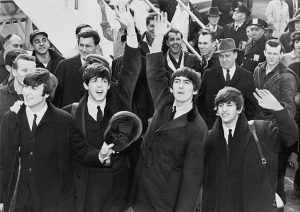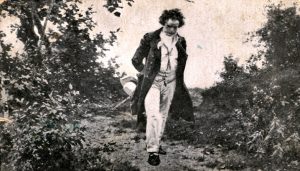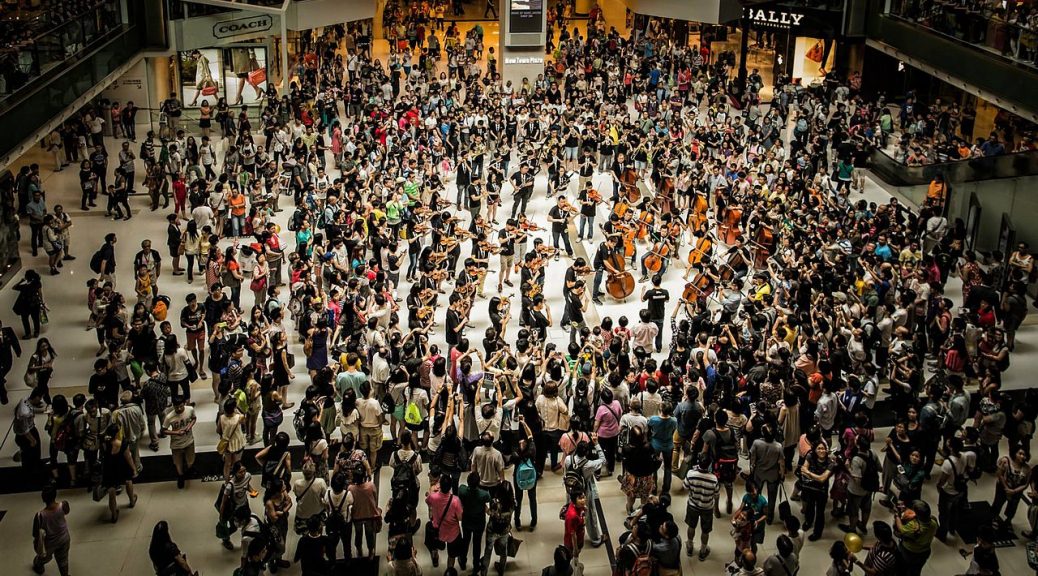On the fifth Sunday after Epiphany (February 4, 2018), the Rev. Dr. Arthur Suggs continued with — as he said — “a series of sermons on primal archetypes that wind their way through the scriptures, bend their way through the world’s religions, and churn their way through our lives. First in the series was trees, the second was mountains, the third was light, today is music, and next will be water.”
Spiritual Music … the Beatles?
The Rev. Dr. Suggs started with this: “For the sermon this morning, let me begin with part of an article from about a year ago. It was strange because only after reading the article did I look at who wrote it and realized that I know him:
“As a child being raised in a troubled home, religion and spirituality were discussed about as often as we discussed opera, which was never. Music and, to a lesser degree, nature were my sole companions. Turning on the radio one day, I heard a hit song that began, ‘Help! I need somebody! Not just anybody! Help! You know I need someone! Help!’
“I was a twelve-year-old boy, and, like John Lennon, I also needed help, but I didn’t know where to turn. I did not have a girlfriend, therapist, church, or relationship with a ‘concept’ called God. So I turned to the Beatles, none of whom professed or practiced Christianity, and yet they wrote and recorded song after song that came from a place of deep spirituality.”

“It was not Jesus, Yahweh, Sigmund Freud, Higher Power, or Jehovah that led me to hope for some ‘Help!’ It was the Beatles. George Harrison was a Hare Krishna who wrote ‘My Sweet Lord’ and ‘Give Me Love’; John Lennon penned ‘Eleanor Rig-by,’ ‘Imagine,’ and ‘Give Peace a Chance’; and Paul McCartney composed ‘Lady Madonna,’ ‘Black Bird,’ ‘Let It Be,’ and ‘Hey Jude.’”
A Powerful Link Between
Music and Our Deepest Emotions, from Sadness to Joy
“There’s a link, somehow or other, between all kinds of people and their varieties of music. Many researchers have studied this phenomenon, and there’s a very powerful link between music and our deepest feelings, our deepest emotions, covering the range of emotions from sadness to joy and everything in between.”
Rev. Suggs shares examples of evocative music, from the recognizable scores of The Titanic and Schindler’s List films, including the “Hymn of the Sea” in the former and Itzhak Perlman’s violin solo in the latter – “a very simple violin piece that makes you ache inside with both sadness and beauty.”
Then a song from the Rocky III soundtrack …
“So I’m tooling down Route 17 when “Eye of the Tiger” comes on, and I crank it up loud. In my mind, I’m Rocky, defeating the enemies, unbeatable, and listening to this music.”
“Suddenly, I look down, and I’m going 95 miles an hour. A wave of panic comes over me, and I check all the mirrors, not expecting to see one cop but anticipating six cops behind me. Thankfully, there’s no cruiser, but I slow way down to a normal speed limit. How do you get so engrossed that you don’t even know you’re going 95 miles an hour? It’s amazing.”
Jimmy Hendrix, Woodstock, the “Flower Duet” from Delibes’ opera Lakmé, Eminem, Amazing Grace, praise bands, Gregorian or Taizé chant … and then some.
Rev. Suggs continued …
Everything in the Universe Vibrates in Motion with Frequency and Sound
Plato wrote: Music “gives soul to the universe, wings to the mind, flight to the imagination, and charm and gaity to life.”
I suggest to you that it’s sort of significant for Plato to say that. Here’s the author who introduced into the world the idea of the soulness of things. “Music gives soul to the universe.”
Two observations:
There does not exist a religious tradition that does not have music integral in some way. Even the traditions based on silence (Quakers, Zen Bhuddism), chant music of some type as prelude and postlude for them. It’s found everywhere.
The other observation is one that I think we do take for granted, but it’s only things that are categorically true. There are zero exceptions to this and that is:
Everything in our universe vibrates. Every single portion of our universe is in motion with a frequency and a sound and a vibration.

EVERYTHING!
Our Milky Way goes around once every 230 million years. The Sun and our whole solar system orbit the Milky Way in 230 million years.
Our Earth circles the Sun, and we define it as a year.
Our moon circuits the Earth every 28 days.
We observe the sabbath based upon our religious traditions every seventh day.
The cycle of our day is based upon the rotation of the Earth relative to the Sun.
And so we have breakfast, lunch, and dinner every day.
We have waking and sleeping every day, and work and leisure every day.
Our hearts beat around 70 times per minute.
Our respiration is about 20 times per minute.
We can hear music from 60 hertz up to the vicinity of 20,000 hertz.
The vibration of atoms in general is 1013 hertz.
Every ray of light has a frequency to it.

Ludwig van Beethoven said:
“Music is the mediator between the spiritual and the sensual life.
So what we do, with a combination of both art and science, is that we organize the frequencies. We manipulate and arrange the vibrations to express our grief and our joy, our sadness and our exultation, our longing and our reverence.”
Amen.
Featured Image Credit: Flash Mob! HKFO performs the Beethoven “Ode to Joy” Flash Mob, Hong Kong’s largest choral-orchestral flash mob at Shatin New Town Plaza on 28 July 2013.

